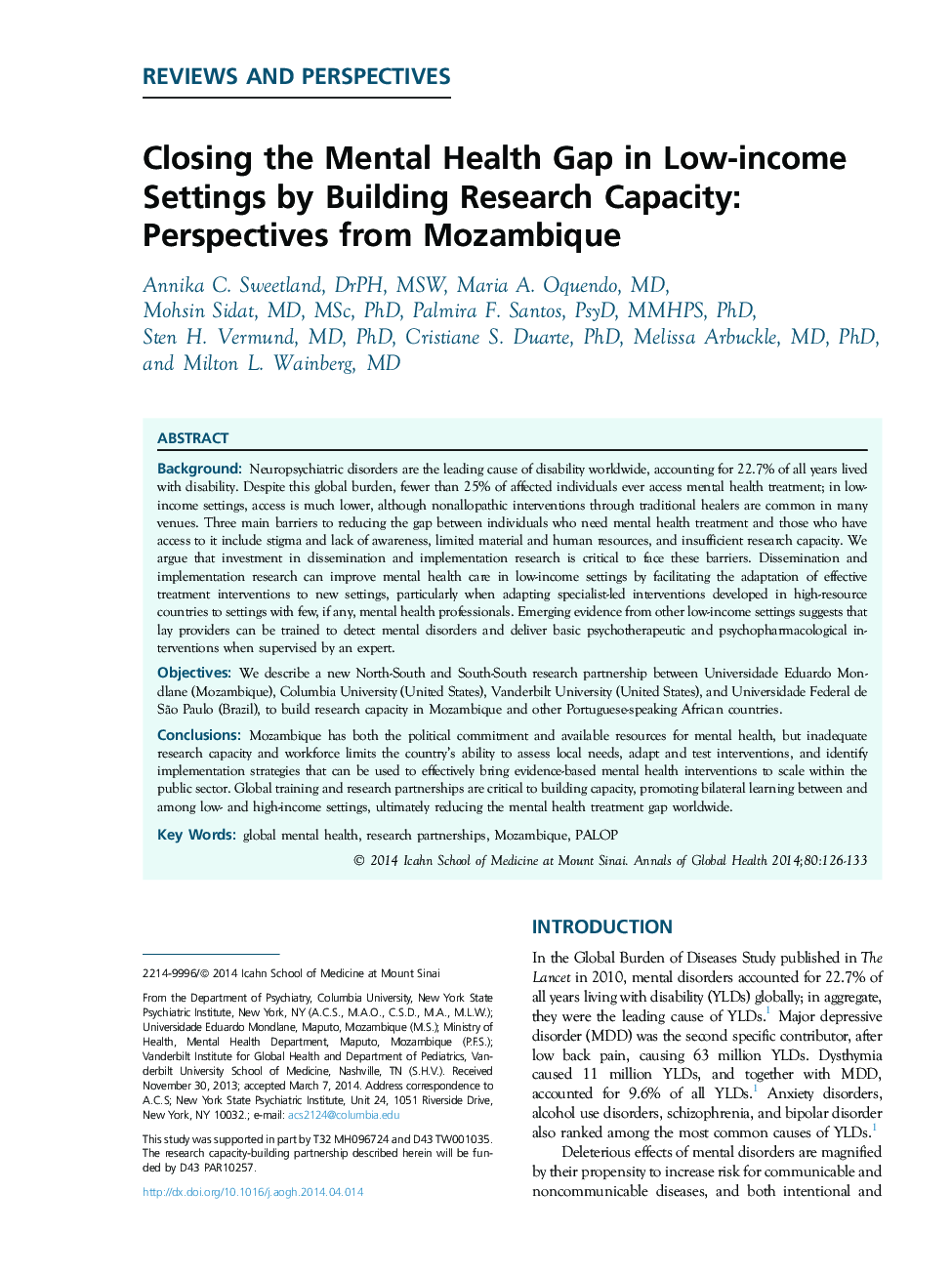| کد مقاله | کد نشریه | سال انتشار | مقاله انگلیسی | نسخه تمام متن |
|---|---|---|---|---|
| 3446273 | 1595441 | 2014 | 8 صفحه PDF | دانلود رایگان |
BackgroundNeuropsychiatric disorders are the leading cause of disability worldwide, accounting for 22.7% of all years lived with disability. Despite this global burden, fewer than 25% of affected individuals ever access mental health treatment; in low-income settings, access is much lower, although nonallopathic interventions through traditional healers are common in many venues. Three main barriers to reducing the gap between individuals who need mental health treatment and those who have access to it include stigma and lack of awareness, limited material and human resources, and insufficient research capacity. We argue that investment in dissemination and implementation research is critical to face these barriers. Dissemination and implementation research can improve mental health care in low-income settings by facilitating the adaptation of effective treatment interventions to new settings, particularly when adapting specialist-led interventions developed in high-resource countries to settings with few, if any, mental health professionals. Emerging evidence from other low-income settings suggests that lay providers can be trained to detect mental disorders and deliver basic psychotherapeutic and psychopharmacological interventions when supervised by an expert.ObjectivesWe describe a new North-South and South-South research partnership between Universidade Eduardo Mondlane (Mozambique), Columbia University (United States), Vanderbilt University (United States), and Universidade Federal de São Paulo (Brazil), to build research capacity in Mozambique and other Portuguese-speaking African countries.ConclusionsMozambique has both the political commitment and available resources for mental health, but inadequate research capacity and workforce limits the country’s ability to assess local needs, adapt and test interventions, and identify implementation strategies that can be used to effectively bring evidence-based mental health interventions to scale within the public sector. Global training and research partnerships are critical to building capacity, promoting bilateral learning between and among low- and high-income settings, ultimately reducing the mental health treatment gap worldwide.
Journal: Annals of Global Health - Volume 80, Issue 2, March–April 2014, Pages 126–133
